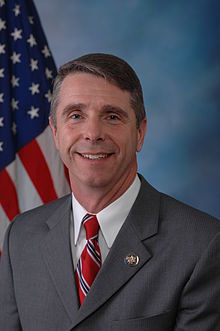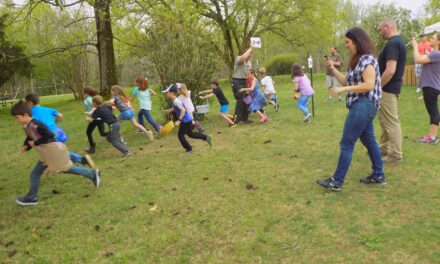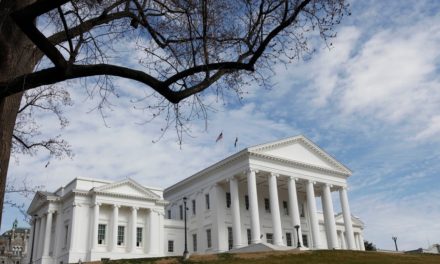WASHINGTON – Today, Congressman Rob Wittman (R-VA-01) introduced the America’s Conservation Enhancement (ACE) Reauthorization Act of 2024 alongside Congresswoman Debbie Dingell (D-MI-06), Congresswoman Jen Kiggans (R-VA-02), and Congressman Mike Thompson (D-CA-04). This comprehensive legislation will enhance the preservation of America’s natural resources, wildlife, and habitats.
“As a former marine scientist, I know from experience how critical it is that we protect and manage our natural resources wisely,” said Congressman Wittman. “I’m proud to introduce the America’s Conservation Enhancement Reauthorization Act, which continues record investment in our nation’s precious natural resources, including the Chesapeake Bay. By reauthorizing and enhancing these vital conservation programs, we are taking significant steps to support our agricultural communities, and preserve our wildlife, waters, and lands for future generations.”
“The United States is in the midst of an unprecedented biodiversity crisis, and we need to act now and invest substantively in conservation,”said Congresswoman Dingell. “I’m proud to join my colleagues to introduce America’s Conservation Enhancement Reauthorization Act to support a broad range of conservation programs and am hopeful we can work together to increase the funding in this bill to the level authorized by the Senate.”
“As Coastal Virginians, the Chesapeake Bay is an invaluable part of our everyday lives,” said Congresswoman Kiggans. “I am proud to partner with my friend and colleague, Congressman Wittman, on legislation to ensure we can continue to conserve our beautiful waterways, wetlands, and wildlife habitats for decades to come!”
“Reauthorizing our most critical wildlife conservation programs just makes sense,” said Congressman Thompson. “The ACE Act will ensure the longevity of our North American Wetlands Conservation Act Program, which has already helped conserve over 32 million acres of wetlands across our country, as well as other impactful programs. I’m a longtime supporter of U.S. conservation efforts and I am proud to serve as a co-sponsor for this bipartisan legislation. I thank Reps. Wittman, Dingell, and Kiggans for their support.”
Congressman Wittman serves as co-chair of the Chesapeake Bay Watershed Task Force, of which he works across the aisle to advance bipartisan legislation to protect the Bay and conservation efforts nationwide.
The following legislation that Rep. Wittman previously introduced or co-led is included in the America’s Conservation Enhancement Reauthorization Act:
North American Wetlands Conservation Act:
- Protects waterfowl, fish, wildlife resources, and wetland habitats
- Supports local economies that depend on outdoor recreation, tourism, and agriculture
- Preserves American traditions such as hunting, fishing, bird watching, family farming, and cattle ranching.
National Fish Habitat Conservation Through Partnerships Act:
- Strengthens partnerships and projects to help maintain healthy fish populations and aquatic ecosystems.
Chesapeake Bay Program Reauthorization Act:
- Reauthorizes the Chesapeake Bay Program, a successful federal-state partnership that coordinates efforts to reduce pollution in the Bay, through Fiscal Year 2025.
Chesapeake Bay Gateways and Watertrails Network Reauthorization Act:
- Supports efforts to improve the condition of habitats and enhance public access to the Bay and its rivers.
Chesapeake Watershed Investments for Landscape Defense (WILD) Act:
- Helps local entities rehabilitate fish and wildlife habitats through the Bay Watershed
“This bill would extend essential programs that fund community-led projects to restore and protect the Chesapeake Bay’s fisheries, wildlife, and waterways across the Bay region,” said Chesapeake Bay Foundation Federal Director Keisha Sedlacek. “As we enter the next phase of the cleanup, it is critical that these programs have the authority and resources the ACE Reauthorization Act would provide to help Bay states meet the coming challenges. Many thanks to House Chesapeake Bay Task Force Co-Chairman Wittman, Rep. Debbie Dingell, Rep. Jen Kiggans, and Rep. Mike Thompson for introducing it in the House. The Chesapeake Bay Foundation appreciates your leadership and commitment to moving this important legislation through Congress this summer.”
“Roughly a third of all species in the United States are at risk,” said Andrew Wilkins, director of land conservation policy at the National Wildlife Federation. “We’re so pleased that Representative Wittman and his colleagues are leading this effort to reauthorize the ACE Act, which supports collaborative efforts to restore habitat for wildlife on our lands and in our waters. Americans are united in support of protecting our outdoor heritage and we are hoping for a swift, bipartisan vote in favor of this bill.”
“NAWCA is a foundational pillar of the North American Model of Wildlife Conservation,” said Ducks Unlimited CEO Adam Putnam. “Combined with regional programs like the Chesapeake Bay Program and the Chesapeake WILD Act, the ACE Act helps restore habitat across the U.S. while making our communities more resilient. We thank Rep. Wittman for introducing legislation to reauthorize some of North America’s most successful wetlands conservation programs and urge his colleagues to support it.”
“Provisions within the ACE Act like the National Fish Habitat Partnership are invaluable for America’s 54.5 million anglers and $148 billion sportfishing economy,” said Glenn Hughes, president of the American Sportfishing Association. “Reauthorizing these critical programs will result in direct and immediate benefits for our waterways, fish and recreational anglers. We are grateful to Reps. Wittman, Dingell, Kiggans, and Thompson for leading this important effort.”
While making major investments in conservation of natural resources, the bill also includes important measures to enhance accountability and reporting to ensure the effectiveness and transparency of funded projects.
Prior to his election to Congress, Congressman Wittman spent 26 years working in state government, most recently as field director for the Virginia Health Department’s Division of Shellfish Sanitation. Earlier in his career, he worked as an environmental health specialist for local health departments in Virginia’s Northern Neck and Middle Peninsula regions.
Read the full bill text here.









